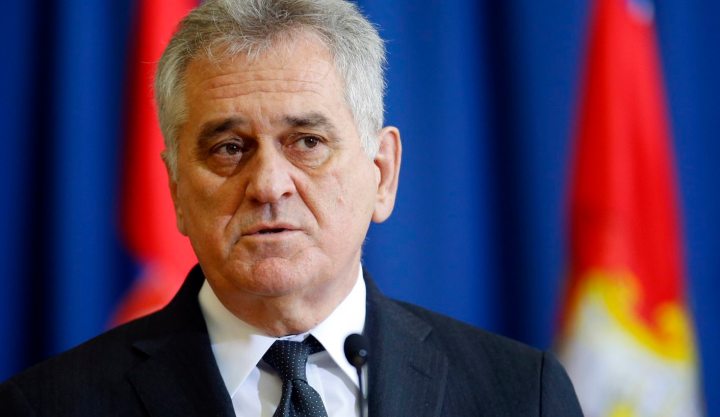Newsdeck
EU gives go-ahead for Serbia entry talks by January 2014

Serbia could start negotiations on joining the European Union by January next year, EU ministers agreed on Tuesday, rewarding Belgrade for improving relations with its ex-province Kosovo. By Justyna Pawlak and Adrian Croft.
Ministers also agreed the EU should launch preparations with Kosovo on a so-called association agreement, a step on the path to eventual EU membership that can carry economic benefits.
Both decisions must be confirmed by EU leaders at a summit in Brussels later this week, but they mark a milestone towards EU integration for both Belgrade and Pristina, which have been at odds since Kosovo seceded in 2008 with Western support.
“They deserve it, their leaders have shown great political courage,” French European affairs minister Thierry Repentin said after meeting his EU counterparts in Luxembourg.
EU negotiators brokered a historic deal between the two in April, after months of tense negotiations, in which Serbia agreed to cede its last remaining foothold in Kosovo.
The agreement still has to be fully implemented, and EU governments will assess progress before giving a final go-ahead to talks later this year.
The EU negotiation process would help drive reforms in Serbia, the largest country to emerge from the former Yugoslavia, luring investors to its ailing economy.
It will also help rebuild its image as the pariah of the western Balkans arising from its central role in the wars that tore through the region after the 1991 collapse of Yugoslavia.
In the past few years, Serbia has made notable strides towards the EU thanks to progress on democratic reforms and the capture of fugitives wanted for crimes during the Yugoslav wars.
Arresting Ratko Mladic, the former Bosnian Serb military commander who was on the run for 16 years until he was caught in 2011, had been an important demand of the European Union.
The remaining sticking point is relations with Kosovo, which broke away from Serbia in a 1998-99 guerrilla war.
The April deal was aimed at ending the ethnic partition of Kosovo between its ethnic Albanian majority and a pocket of some 50,000 Serbs in the north.
Serbs consider Kosovo the fount of their nation and Orthodox Christian faith, but Belgrade lost control over the territory in 1999 when NATO conducted 11 weeks of air strikes to halt the killing and expulsion of ethnic Albanian civilians by Serbian security forces waging a counter-insurgency campaign.
Kosovo’s independence has been recognised by more than 90 countries, including the United States and 22 of the EU’s 27 members. Serbia says it will never recognise Kosovo as sovereign.
But the EU has been careful not to officially and explicitly link the recognition issue to EU admission for Serbia given that five EU states do not recognise Kosovo either.
Serbia is unlikely to join the EU before 2020. Of its fellow ex-Yugoslav republics, Slovenia joined in 2004, Croatia follows on July 1 and tiny Montenegro began membership talks last year. Macedonia is a candidate while Bosnia has yet to apply. DM
Photo: Serbian President Tomislav Nikolic speaks during a media conference in Belgrade April 1, 2013. REUTERS/Marko Djurica



















 Become an Insider
Become an Insider